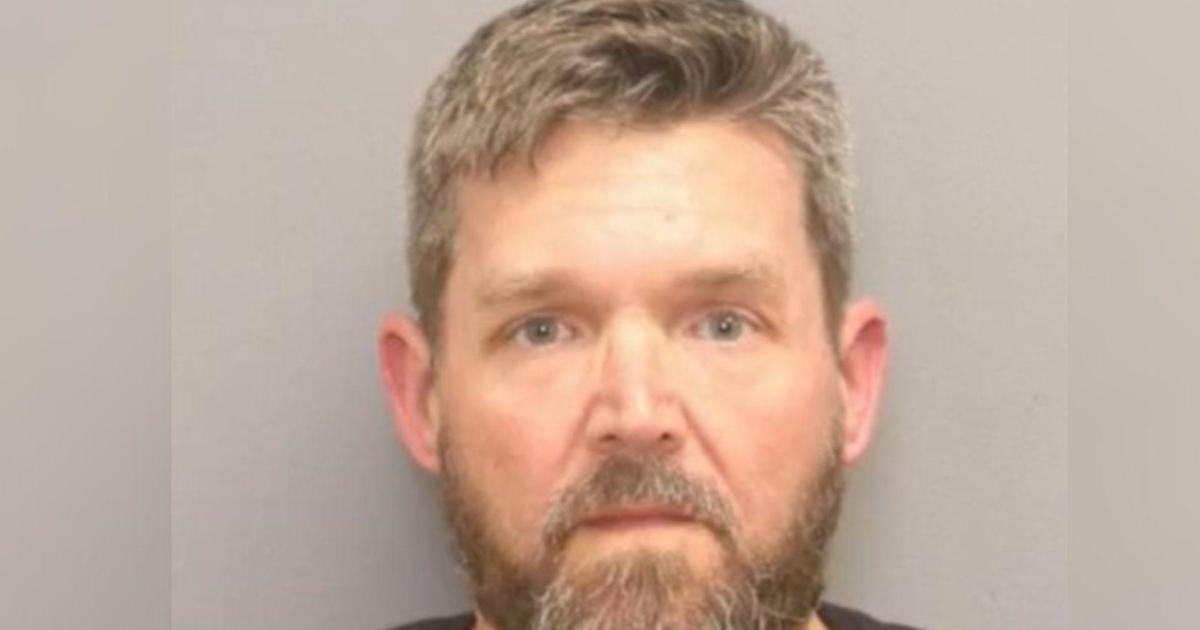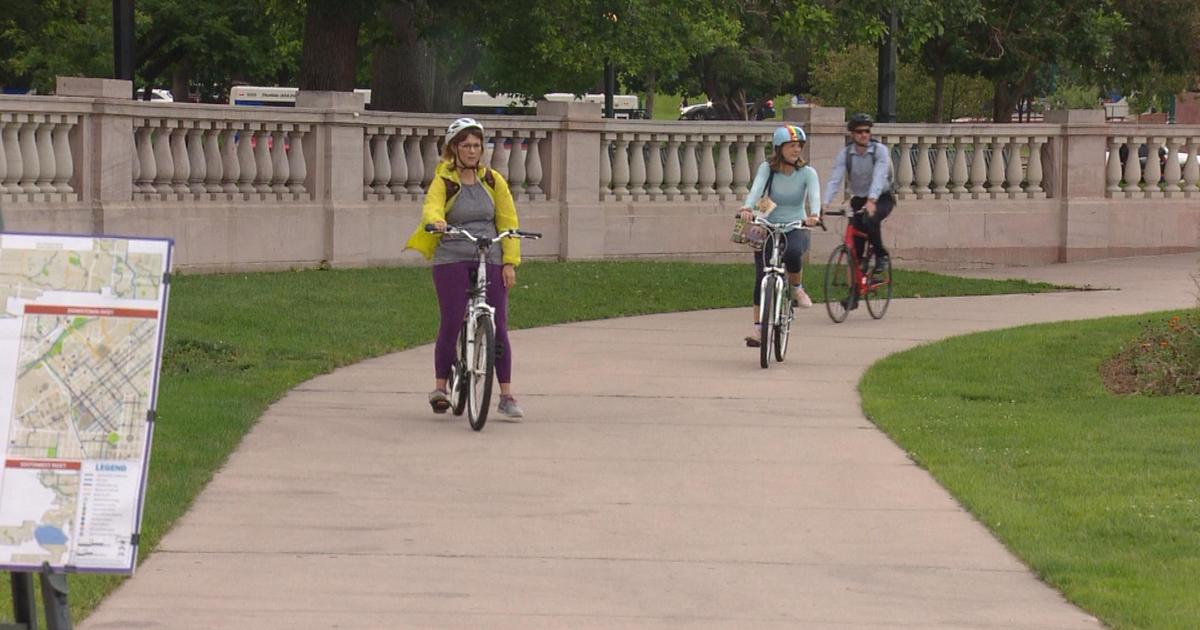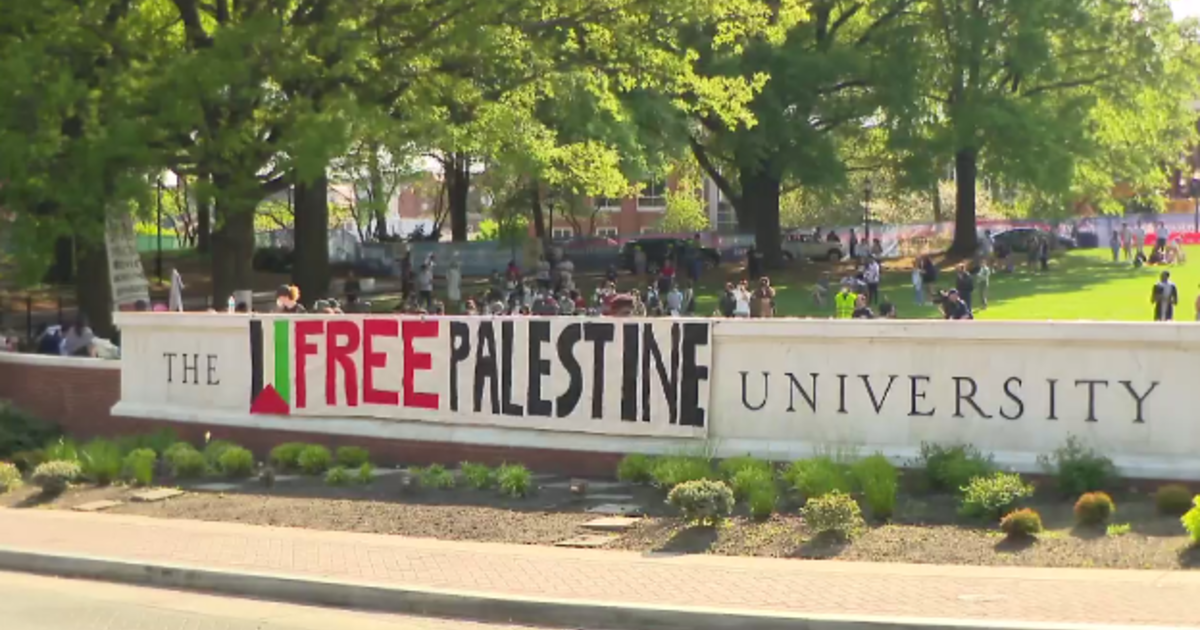County Executive's Misconduct Trial Resumes With Shocking Testimony From Security Detail
ANNAPOLIS, Md. (WJZ) -- The misconduct trial for Anne Arundel County Executive John Leopold resumed Tuesday morning with police Corporal Joseph Pazulski on the stand. He's a member of Leopold's security detail. On Friday, he testified he helped Leopold put up campaign signs.
Mike Hellgren has more.
The state prosecutor claims Leopold inappropriately used his staff, having his security detail perform campaign functions, take him to sexual trysts with another county employee and empty urine from his catheter bag after a hospital stay. Leopold denies any wrongdoing. His defense team says he may have "lacked social grace" but there's nothing illegal about what he asked employees to do. The prosecution claims it was a waste of taxpayer-funded overtime.
With Pazulski on the stand, the defense was trying to hit the point that there were not detailed regulations governing the county executive's security detail. Pazulski said under Janet Owens he was required to keep a mileage log to separate campaign events from official duties so her campaign could reimburse the county. He said that was discontinued under Leopold.
In depositions filed in a separate civil suit filed by former county employee Karla Hamner, Pazulski said Leopold ordered her transferred and constantly talked "about the size of her breasts."
He also said Leopold transferred another member of the security detail because he "wasn't a loyal supporter."
Pazulski testified he got out of the detail, in part, because "it was getting a little quirky for me."
He also testified he offered to help out on weekends so Leopold wouldn't think he was disloyal and interfere in him getting another police department job.
"I had many conversations with Mr. Leopold in regards to county employees where he fired or transferred them...and I worried that could happen to me," he said.
"It's a common theme you're going to hear in this testimony. People do not say no to Leopold," Hamner said.
In addition to rules governing the security detail, Leopold's lawyer, Bruce Marcus, also asked Pazulski about Leopold's health problems.
The defense pointed out that Leopold never signed, saw, or personally approved any of Pazulski's overtime.
Also testifying was Cpl. Howard Brown, who worked on Leopold's security detail. Brown said he was paid 6 and 1/2 hours overtime just to watch Leopold's cash box at a campaign event. He said he came in on his day off and was paid overtime only to unload campaign signs, that Leopold wasn't ever present. He also said he delivered campaign signs. He was told his job was to "keep the executive happy."
Brown said for at least three months, he was putting up campaign signs daily at Leopold's direction. He says Leopold also ordered him to check on the signs and take them down after the election. Brown says he complained to his superiors.
"I told them I didn't think it was a good idea to be putting signs up," he said.
He also said he picked up campaign contribution checks and deposited them.
He said he never told Leopold "no" directly.
"You don't tell Mr. Leopold 'no.' If he wants something done, you do it. I was fearful of what the retributions would be," Brown said.
"You can see and hear the fear and the kind of turmoil in their voice and on their face about having to reveal these inner secrets," Hamner said.
The defense pointed out the state prosecutor gave both Cpl. Brown and Cpl. Pazulski immunity for their testimony. He asked Brown whether he would have done these actions if he believed they were criminal. Brown said "no"' but reiterated having reservations about placing the campaign signs.
The defense believes conversations between the security detail and Leopold are confidential, but the judge has been allowing the testimony.
Brown also testified Leopold ordered him to put together files on his opponent Joanna Conti before the county executive race and on Carl Snowden and county council member Thomas Redmond.
He said he used a special state police database, judiciary case search and Google. He said Leopold made it clear what he wanted. He said Leopold would ask him to explain information he found. He told Brown he didn't want him going to the courthouse for records because Leopold didn't want Brown's name used if he needed to sign for records.
The information Brown found included Joanna Conti's real estate ventures. He was paid by the taxpayers while doing this. He said he worked 10 to 15 hours researching Conti alone.
Brown admitted to donating to Leopold's campaign. He said he did so because Leopold would treat him better. He said most of those "enemy files" were culled from information anyone could get from Google. He admitted no one specifically told him to use the state's criminal database for some searches, but it had been done on the past and he believed that's what the county executive wanted.
Meanwhile, a Conti sign was introduced into evidence. Leopold is accused of stealing the sign, which is torn and stained with dirt.
Brown said Leopold, "Got out, picked up the sign, and he threw it down a hill. He then fell, and I checked to see if he was OK. He was. We got back in the truck and left."
Brown testified Leopold ordered him to buy a particular brand of coffee and empty it out so he could use it to empty Leopold's urine into it. The prosecutor introduced the red coffee can in a bag into evidence.
He said he would keep the can in the center console of the car and he "drained a lot of urine." He said he did it because he "felt he had no choice."
He said he would drive Leopold to a bowling alley where Leopold would meet with his girlfriend, Connie Casalena, in the parking lot. He said Leopold would make him go to the other side of the lot and would later tell Brown, "It was the best b*** j** I ever had."
Brown also testified Leopold ordered him to keep girlfriends apart at the hospital.
Leopold's defense contends those on his security detail were disgruntled and upset he ordered an audit of the detail's overtime.
The last witness for the day was Erik Robey, assistant to chief administrative officer for County Executive Leopold. He also worked on Leopold's campaign.
Leopold is sitting with his other defense attorney, listening and taking notes during the testimony.
The defense also had a motion to get records of other state prosecutor investigations, saying it is "vague and arbitrary" as to why they are going after Leopold. Defense lawyers say the prosecutor's office has failed to go after other politicians for taking campaign signs, pointing to a case in Queen Anne's County. In that case, the former state prosecutor declined to prosecute a politician for removing an opponent's campaign sign, as Leopold is accused of doing.
The prosecutor said this is not "selective prosecution." And he said other prosecutorial decisions have no bearing on this case. He said his staff looks into hundreds of complaints each year, and it would be unduly burdensome to produce all case files.
Judge Dennis Sweeney is presiding over the case and will make a determination of innocence or guilt.
He ordered the state prosecutor to turn over the records in the Queen Anne's case. He also wants the prosecutor to turn over files on "a limited number of similar misconduct cases" to see if there's a problem with selective prosecution. Those files will not be made public unless the judge deems it appropriate.
Leopold decided not to have a jury decide his fate. He faces up to five years in jail if found guilty.
Opening statements and testimony started Friday. Witnesses already have included Leopold's assistant, who wept when describing how she emptied his urine and said she did so out of fear for her job.
Former County Executive Janet Owens, who created the security detail, also testified.
The trial is expected to last 10 days, and WJZ will cover every development.



